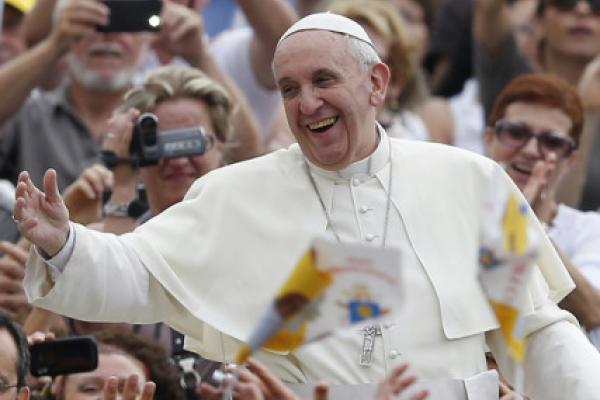This weekend, more than 800,000 spectators crowded the St. Peter’s Square area while 500,000 more watched on giant screens around Rome as Pope Francis canonized Pope John XXIII and Pope John Paul II. The first time a pope has sainted two popes at the same time, this historic event has been called a savvy political move by the media, since Pope Francis recognized both the more liberal John XXIII and the more conservative John Paul II, thus satisfying two opposing wings of the Roman Catholic church. While Pope Francis did indeed display political savvy at this canonization, this event holds far more significance than that (even leaving aside the spiritual question of discerning sainthood).
Pope Francis understands important principles of leadership, not just politics. As Ronald Heifetz et al point out in The Practice of Adaptive Leadership, leadership is about “mobilizing people to tackle tough problems,” and leadership involves bringing differences in values to the surface. Heifetz argues that, in any human group, people seek a leader who will solve their problems. But, because different people within a group hold different values, no leader can please everyone and no leader can solve all the problems in a way that satisfies everyone. Any leader who tries to be the hero and solve all the problems will be scapegoated, and the cycle of seeking the perfect leader who can solve all the problems will repeat itself. Instead of being a heroic problem-solver, the leader’s job, according to Heifetz, is to help people see the differences in values represented in the group and then “give the work back to the people at a rate they can stand.” When the people themselves wrestle with differences in values and work together to address problems, they come to respect one another and see nuances they didn’t see when they were polarized. Moreover, when they work together toward a solution, the outcome is stronger and longer-lasting than one fashioned by the leader alone.
Pope Francis, in canonizing the two popes, named important values that each represents . He pointed out John XXIII’s efforts to bring the church into the twentieth century by convening the Second Vatican Council, and he named John Paul II a “Pope of the family.” He honored both men as courageous leaders.
By honoring both popes, Francis acknowledged that both the liberal and the conservative wings of the church carry important values. He highlighted the best of what both popes contributed. In so doing, he refused to take sides, but called the people of the church to see the best in opposing points of view.
By surfacing differences in values and calling people to respect the good in opposing viewpoints, Pope Francis is “giving the work back to the people at a rate they can stand.” He is mobilizing people to tackle the tough problems both within the church and without by preparing them to work together. As in his other initiatives, Pope Francis has refused once again to be pigeonholed.
Margaret Benefiel, Ph.D., author of Soul at Work and The Soul of a Leader, works with leaders in health care, business, churches, government, and nonprofits to help them stay true to their souls. Visit her website.
Got something to say about what you're reading? We value your feedback!
